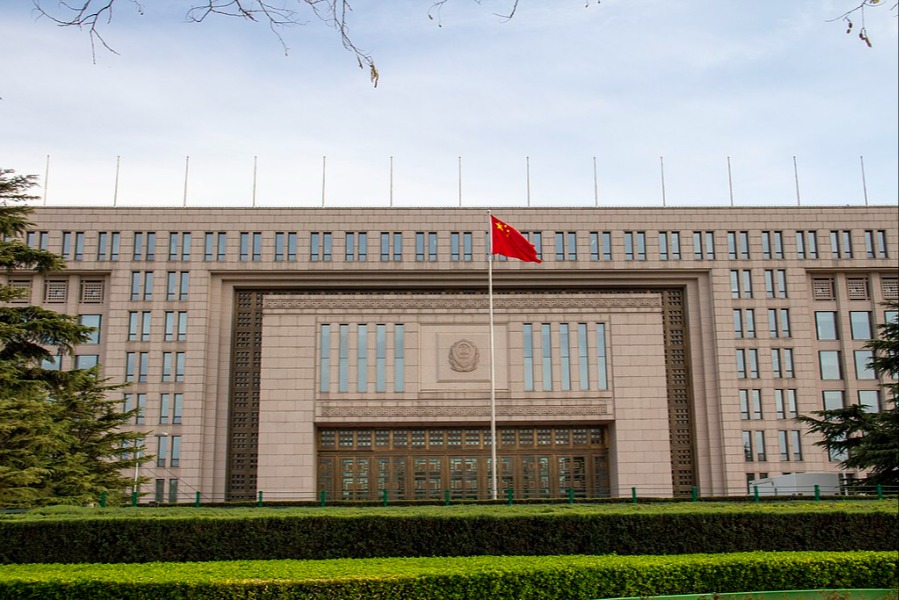Foreign Relations and National Security Cases in the Supreme Court’s October Term 2015
How does the Supreme Court’s October Term 2015 look so far with respect to foreign relations and national security cases? The Court does not have any clear blockbusters like OT 2014’s Zivotofsky v. Kerry. Nevertheless, four potentially significant cases are already on the Court’s docket and cert petitions have been filed in a handful of others.
Published by The Lawfare Institute
in Cooperation With

How does the Supreme Court’s October Term 2015 look so far with respect to foreign relations and national security cases? The Court does not have any clear blockbusters like OT 2014’s Zivotofsky v. Kerry. Nevertheless, four potentially significant cases are already on the Court’s docket and cert petitions have been filed in a handful of others.
First, OBB Personenverkehr v. Sachs, a Foreign Sovereign Immunities Act (“FSIA”) case, was argued on October 15, 2015; see my prior posts here and here. Second, at the beginning of the November sitting the Justices will hear argument in Spokeo v. Robbins, a case about Congress’s ability to confer standing on private parties who suffer only statutory injuries, an issue which arises in some foreign relations contexts.
Third, the Court has yet to schedule argument in Bank Markazi v. Peterson, a case challenging
22 U.S.C. § 8772 as unconstitutionally directing the outcome of a pending case. The plaintiffs hold default judgments against Iran in cases brought under the FSIA’s section providing a cause of action and an exception to immunity for suits against states designated as sponsors of terrorism. Plaintiffs are seeking to execute against $1.75 billion in bonds held on behalf of the Central Bank of Iran (“Bank Markazi”) by Citibank in New York. These assets were blocked by Executive Order 13,599 in February 2012, and Congress passed § 8772 in August in that same year. Section 8772 permits the attachment or execution of certain blocked financial assets of the Bank Markazi held in the United States. The definition of “financial assets” in § 8772 includes only those assets involved in this case. The Second Circuit held that by enacting § 8772, Congress merely changed applicable law rather than directing the case’s outcome. In response to a CVSG, the government argued that the Court should not take the case. (For more on the government’s track record in CVSG’d foreign relations cases, see this post).
Fourth, the Court will take up the extraterritorial application of RICO. The case, RJR Nabisco, Inc. v. The European Community, alleges that RJR Nabisco, Inc. and its related corporate entities (collectively, “RJR”) participated in a money-laundering scheme in which purchasers of RJR’s cigarettes obtained euros from the proceeds of illicit drug transactions. The district court dismissed the European Community’s RICO claims, reasoning that RICO did not satisfy the “unmistakable [Congressional] intent” requirement for extraterritorial application under the Supreme Court’s decision in Morrison v. National Australia Bank Ltd. The Second Circuit vacated and remanded the case for further proceedings.
It reasoned that by incorporating RICO predicates that explicitly applied extraterritorially, Congress expressed its “unmistakable intent” that RICO also apply extraterritorially, but only to the same extent as those predicates. Thus, RICO applies extraterritorially “if, and only if, liability or guilt could attach to extraterritorial conduct under the relevant RICO predicate.” The Second Circuit’s opinion deepens the split among courts as to whether the extraterritoriality analysis properly focuses on RICO predicate acts or on the location of the RICO enterprise (as the district court in this case had reasoned). The Second Circuit’s opinion in the RJR case also addressed an interesting diversity issue: whether the European Community is a “foreign state” as defined by the FSIA, thus providing the district court with subject matter jurisdiction under 28 U.S.C. § 1332(a)(4). The Second Circuit held that the European Community was a “foreign state,” a conclusion that RJR did not challenge in its cert petition.
Two pending cert petitions raise yet another sovereign immunity issue: whether 28 U.S.C. § 1605(a)(3), the “expropriation” exception to sovereign immunity under the FSIA, strips a foreign state of immunity in suits alleging that it confiscated property of its own nationals located in the foreign state. In Mezerhane v. Republica Bolivariana de Venezuela, the plaintiff alleged that the Venezuelan government engaged in a systematic confiscation of his businesses—namely, a bank, a television channel, and a newspaper—during the 2000’s. The Eleventh Circuit held that the expropriation exception did not apply to suits based on a foreign state’s treatment of its own nationals’ property under the “domestic takings” exception. In Helmerich & Payne International Drilling Co. v. Bolivarian Republic of Venezuela, 784 F. 3d 804 (D.C. Cir. 2015) by contrast, the D.C. Circuit held that Venezuela could be sued under the exception if the domestic taking in question was motivated by discriminatory animus based on U.S. ownership of the Venezuelan company whose assets were seized.
Mezerhane and Venezuela have each petitioned the Court for certiorari. Although the Mezerhane and Helmerich decisions are reconcilable, the D.C. Circuit appeared to take a more expansive approach to the expropriation exception. That there is real uncertainty about the scope of the exception in these cases is perhaps best demonstrated by Senior Circuit Judge Sentelle’s dissenting opinion in Helmerich. There, he reasoned that the domestic takings rule should end this case because a Venezuelan national may not seek redress in an American court for wrongs suffered in its home country: “[w]hen appellees chose to incorporate under Venezuelan law, they bargained for treatment under Venezuelan law. To extend our examination of Venezuelan law to adjudicate its fairness appears to me to violate Venezuela's sovereignty, the value protected by the FSIA.” The Helmerich case also raises a second important issue under 1605(a)(3): how to determine what constitutes “rights in property,” another issue on which the D.C. Circuit panel disagreed.
Finally, a cert petition has been filed in Hernández v. Mesa, a case about the extraterritorial application of the Fourth Amendment as applied to a cross-border shooting in an enclosed space under U.S. control.
Taken together, these grants and pending petitions suggest that the Court will continue its recent focus on FSIA cases, extraterritoriality, and separation of powers. It should be an interesting term.




